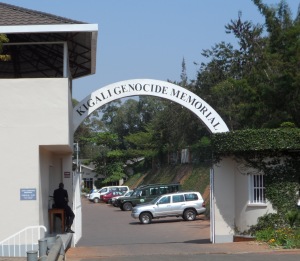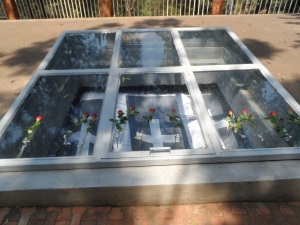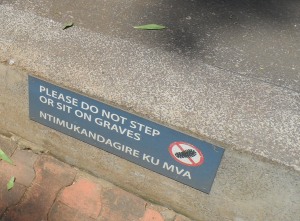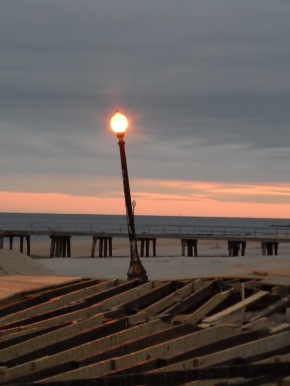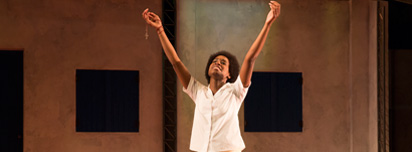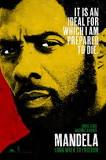In my last post, I wrote about Bryan Stevenson and the incredible work of the Equal Justice Initiative. Six weeks later, on May 20, Grace & Race, the Center for Faith & Work, and Hope for New York – all of which are connected to Redeemer Presbyterian Church in New York City – collaborated to host Bryan Stevenson who appeared on stage along with our Senior Pastor, Tim Keller for the very first time. Prior to meeting backstage before the event, these two heavy hitters had never met. In the first half of the evening, each of these powerful speakers gave a rousing talk, available below in the first video. Following that, I moderated a question and answer time, including questions texted in by the audience, available on the second video.
Both are New York Times best selling authors and are now nationally and internationally known for the work they do. In the case of Stevenson, his life’s work has been dedicated to providing legal representation for those on death row, successfully advocating for relief for children tried and convicted as adults, and more recently, leading the charge to mark the sites of every location where a person was lynched in this country. Known for his gifted preaching, Keller, is also the founding president of City to City which has started 300 churches flung across six continents.
Interestingly, both men began their respective organizations 27 years ago with humble beginnings: Keller moved to New York City, which had more crime and far less wealth than it currently does, from the suburbs of Philadelphia to start a church with the least churched demographic: young urban professionals. Stevenson started his organization in Alabama, thinking he would be there for a few years and then relocate to Atlanta but has ended up making Montgomery his home, despite the sacrifices that decision has entailed. This common thread of being committed to the same vision for 25 plus years, signifying a long obedience in the same direction, is how I opened my conversation with both of them: what has sustained their hope over these long years? Stevenson has seen tangible successes in his work and when that fails him, he remembers those whose shoulders he stands on and that keeps him going. For Keller, he’s expected God to bring change through his life’s work because of his belief in the power of the gospel and even when he has doubts, he’s confident that justice will win in the end.
We covered a wide range of topics that evening. Among them: the role of the church when it comes to issues of justice specifically as they relate to mass incarceration and race, the importance of truth and reconciliation in creating a new narrative about the treatment of people of color in this country, and why we need to have a sense of urgency around these issues. For coverage of the whole evening, take a look at these videos, and be prepared, at moments, to be moved, outraged, challenged, and convicted.
